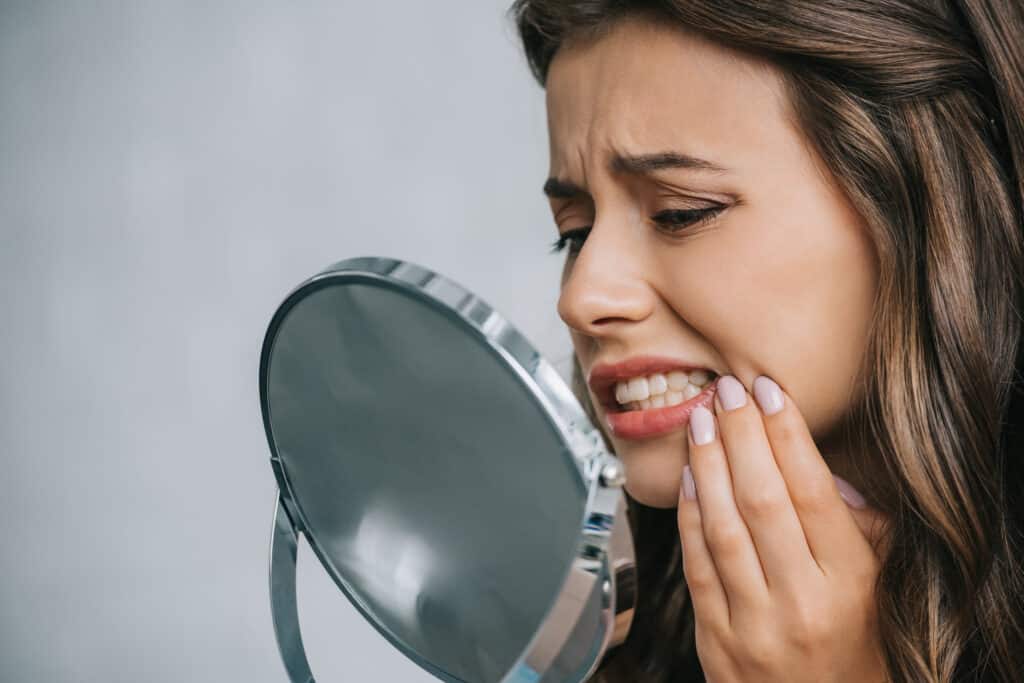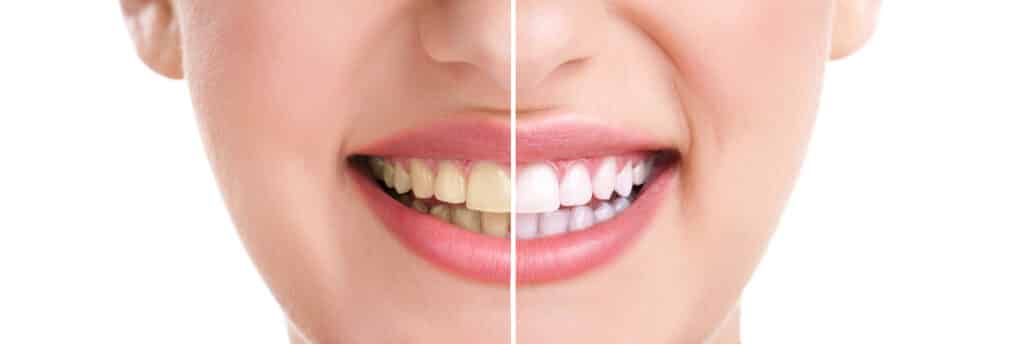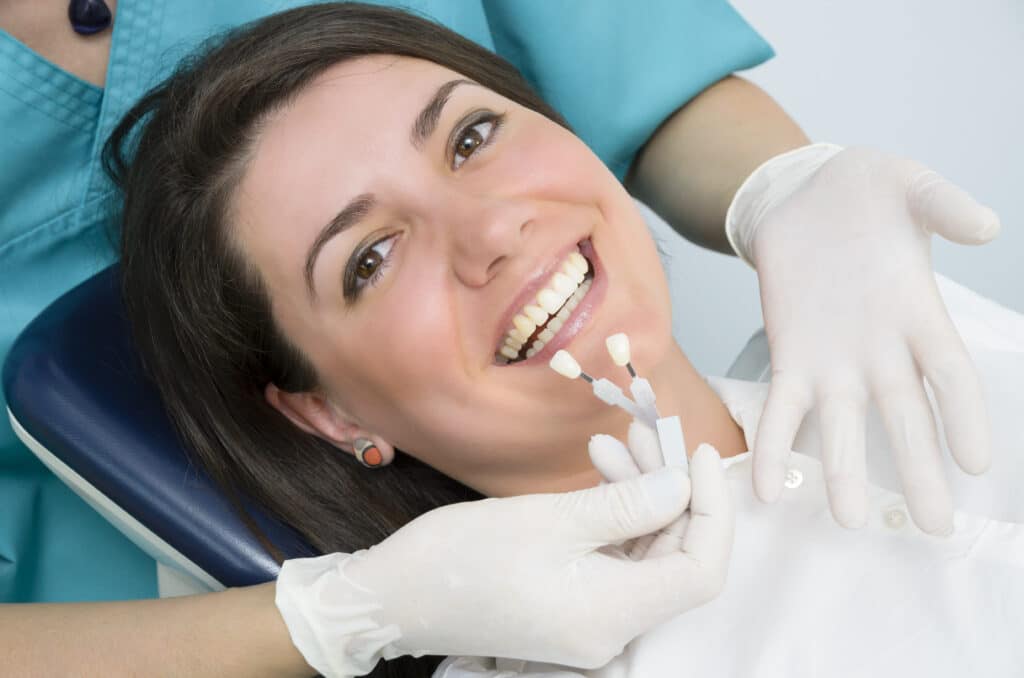We in the United States tend to make an idol of white teeth, seeing them as the foundation of a beautiful smile and spending millions of dollars as a nation to achieve the effect. But is white a tooth’s natural state? Is it more common to have white teeth or are human teeth naturally yellow? The answer is not as straightforward as you might think.

The Natural Color of Teeth
When we see people with brilliantly white teeth, often the first response, however unconscious, is to marvel at how healthy such teeth are. On the other hand, thanks to anti-smoking commercials and adaptations of Charles Dickens novels, we tend to associate yellow teeth with poor oral hygiene. But are these generalizations fair? Is it fair to assume that yellow teeth are unhealthy and white teeth are in their prime?
All About Structure
The answer to this question is founded on the structure of our teeth. Teeth have three basic components which are layered. The heart of the tooth is the pulp. Here the nerves and blood vessels and tissues give life and nourishment to the rest of the tooth so it can function properly. Ordinarily, the pulp of the tooth has little to do with its color, but if the pulp cannot do its job, the tooth will turn black and die.
The middle layer of the tooth is called dentin. It is strong, naturally yellow, and exists primarily to give the tooth its structure. Lastly, the layer most readily seen is called the enamel. The enamel is a hard coat that is designed to protect the rest of the tooth. It is naturally white and shiny and a bit translucent, which allows a bit of the dentin to show through.
A Matter of Genetics
The trouble with the question “are teeth naturally yellow or white” is that there is no one answer that applies to humanity in general. All teeth follow the same basic structure, but the hue of each layer and (perhaps more importantly) its thickness is entirely a question of genetics. Contrary to popular belief, naturally yellow teeth are not necessarily a sign of poor oral health. They may simply be an indication of naturally thin enamel and more dentin showing through.

Do Teeth Naturally Yellow Over Time?
With that in mind, it is true that yellowing may be caused by external factors. The most common is age. Our teeth take a lot of heat over the course of a lifetime, and the natural wear and tear of using our teeth causes the enamel to break down, exposing more of the dentin and making teeth appear more yellow or cream-colored.
And for all that can be said for genetics’ role in the color of teeth, it is not always the overriding force. There are lifestyle choices that can seriously affect the hue of your chompers, whether by damaging the enamel or by staining it. These are some of the most common culprits of unnaturally yellow teeth:
- Chewing tobacco and smoking
- Bruxism (grinding your teeth)
- Brushing with DIY whiteners like activated charcoal, lemon juice, or baking soda
- Brushing too vigorously
- Brushing with a firm-bristled toothbrush
- Drinking staining liquids like wine, coffee, tea, and dark-colored sodas
- Eating candy
- Eating acidic foods like balsamic vinegar, citrus, and tomatoes
While braces are often blamed for making teeth yellow, the orthodontia itself isn’t at fault. Braces make thorough brushing more difficult, and the bacteria left behind can cause irregular teeth staining. You can avoid this by brushing your teeth and braces very well.

Achieving a Whiter Smile
While you can love your smile no matter what color it is, we’ve got a few suggestions for pearlier and whiter pearly whites if that is your goal, even if your teeth run more naturally yellow. Start with these lifestyle adjustments and then consider professional teeth whitening services:
- Quit smoking and tobacco use.
- Give staining foods and drinks a pass.
- If you really can’t stay away, at least chase all troublesome food and beverages down with plenty of water.
- Take regular care of your teeth and gums, including gentle brushing at least twice a day (try a soft-bristled toothbrush) and regular visits to your dentist.
- Ask your dentist about using a nightguard if you grind your teeth
If the damage to your enamel is too severe for regular whitening services to be effective, do not run to DIY tooth whitening instead. As mentioned above, doing so poses major risks. Dental veneers may be a better solution. Ask your dentist for recommendations.
